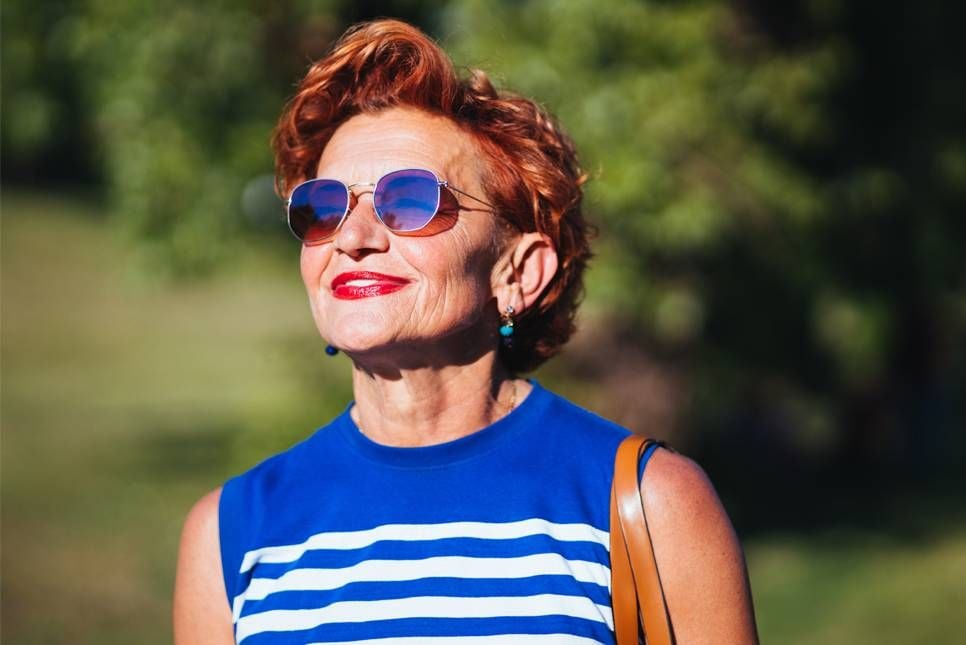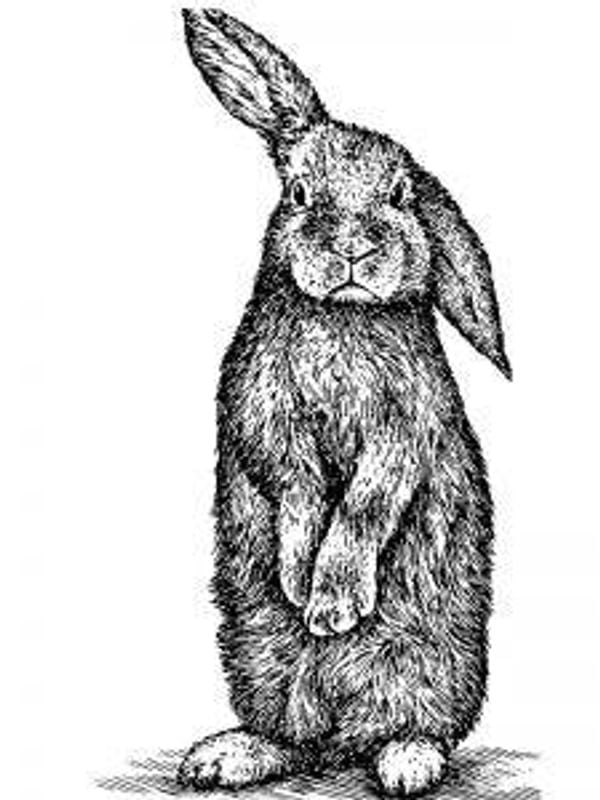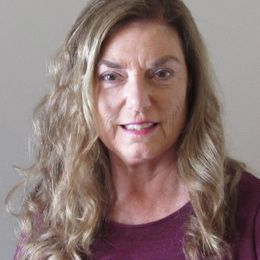Facing 70: Finding Peace in Being 'Real'
The wisdom of 'The Velveteen Rabbit' offers lessons as we age
(Editor's Note: This is the first in an occasional series of features about people facing a new decade (50-90) who reflect on their past and share what energizes them about life today.)

Sixty-nine hit me like a tornado, fast-moving and whipping up emotional debris.
Small things. Cataracts and recommended surgery. "What if I can't read, can't drive and can't work?" I catastrophized the possibilities in my mind as I reflected on my four decades as a public radio and print journalist. No Pulitzer or New York Times bestseller list, just small stories about people whose voices are not often heard, poor people, old people, refugees, hungry children. Enough to keep me thinking I might bring a bit of comfort, in my own small way, to at least a few deserving people.
"One adage about growing older is that you care less about what people think," says Corley.
Another small medical issue arose. A crown needs to replaced at the edge of bone loss in my jaw.
Then a fever and a short, rare spell of not feeling well. Suddenly, I began to feel fragile, vulnerable to the ravages of age.
"It's the beginning of falling apart," I said fearfully to myself.
A Desire to Rise Above My Age
Thankfully, these are small issues easily managed. But they forced me to admit I'm heading decisively into my "later years" and at some point, I will simply no longer exist. I had avoided thinking about that reality for a long time.
Even with all my best intentions and routines of healthy food, walking, tai chi and swimming, the body eventually wears down.
Before 69 and the looming wall that was 70, I could make believe I was always going to be able to rise above my age, keep working as a journalist, travel to see my three grown daughters across the U.S., have mobility and enjoy the simple pleasures of life, like kayaking on a quiet lake, walking in the park and taking guitar lessons.
The Wisdom of The Velveteen Rabbit
One of my strategies for keeping my mind and body alert has been a determination to keep learning new things, especially technology. I started my second master's degree program, this one called Library Informatics and Technology, an attempt to connect my lifelong love of libraries with embracing a few new bits of technology.

In the course on children's literature, a favorite book surfaced to help my peace of mind. It's one of my beloved books of wisdom, a classic, The Velveteen Rabbit by Margery Williams.
Reading this book as an older adult, I found hope from the Skin Horse, the wise toy that had outlasted the boy's mechanical gadgets. The Skin Horse comforted the Velveteen Rabbit with the wisdom about becoming "Real" when a child loves you.
"It doesn't happen all at once," said the Skin Horse. "You become. It takes a long time. That's why it doesn't often happen to people who break easily, or have sharp edges, or who have to be carefully kept. Generally, by the time you are Real, most of your hair has been loved off, and your eyes drop out and you get loose in the joints and very shabby. But these things don't matter at all, because once you are Real you can't be ugly, except to people who don't understand."
Connect With People Who Understand ‘Being Real’
Another healing coincidence arrived during a recent conference of the Gerontological Society of America in Austin, Texas. As a journalism fellow, I had access to wise mental health professionals of my generation who are personally embracing 'the age of being Real.'
One of those is Connie Corley, a 65-year-old professor at Fielding Graduate University in Santa Barbara, Calif., who has worked in the field of gerontology since the 1970s.
One of her guiding pieces of wisdom is from the late inspirational speaker and writer Wayne Dyer who said, "Don't die with your music still in you."
"One adage about growing older is that you care less about what other people think," says Corley. "I don't know if that's been proven, but I can say from my own personal experience and observation that people become less inhibited in the sense of following their interests. If they have never done painting, they might decide to paint. People love taking writing classes as they get older. Many people are joining choirs. There's so much interesting research now about music and the value of stimulating the brain and making social connections."
She is taking part in a brain health study, learning more about the complexity of the brain and cognitive activity, especially because her mother had Alzheimer's, which was confirmed by an autopsy.
Corley is participating in a project researching how music, movement and meditation can encourage residents in nursing homes to be actively engaged in group activity with the goal of becoming more "enlivened."
As a person who has long included creativity as essential in her research and personal life, Corley looks at herself and colleagues who are making lifestyle choices as they leave their professional lives.
"Part of my yearning is I want to spend more time outside," says Corley. "I live in California. My daughters live far away. I have to kind of reinvent myself. Instead of dreading worrying about money if I leave my job, what it would be like if I simplified my life, maybe downsizing, renting a camper and staying at the beach?"
What 'Being Real' Means
I remind myself that it will be comforting if I approach 70 as the age when I have to find peace in "being Real." That means being thankful my sharp edges have been worn down by life. It means being grateful that even though my heart has been broken by the loss of important relationships and the death of loved ones, it still pumps strongly, fueled by compassion.
I'm bending and stretching to loosen up those stiffer joints. I greet my honestly earned wrinkles with a sense of gentleness about my overall "shabbiness" brought on by the winds and rains of life.
I remind myself that I, and the millions of others who have reached our years as "older adults" cannot be ugly, except to those who don't understand what it means to be "Real."


